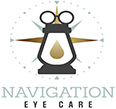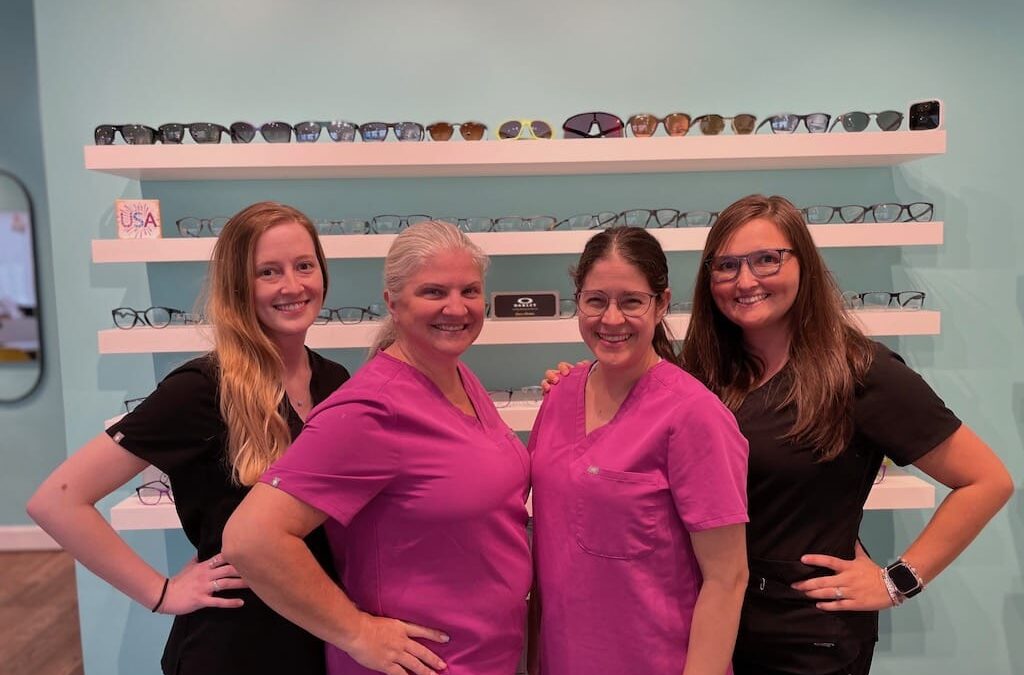Visual Skills and Classroom Success: How Vision Therapy Improves Learning
When we think about academic success, we often focus on study habits, teaching methods, and educational materials. However, one critical aspect that can significantly impact a student’s ability to learn is often overlooked: their visual skills. In this article, we will explore how vision therapy, offered by Optometrist Chesapeake VA and her team of dedicated therapists at Navigation Eye Care, can enhance visual skills and lead to improved classroom performance.
The Connection Between Vision and Learning
Vision is not just about seeing clearly; it encompasses a range of visual skills necessary for learning. These skills include eye tracking, focusing, depth perception, and eye-hand coordination. When any of these skills are compromised, it can affect a student’s ability to read, write, and comprehend information effectively.
Common Vision Problems in Students
Many students struggle with undiagnosed vision problems that can hinder their academic progress. These problems may include:
1. Convergence Insufficiency: Difficulty in focusing on nearby objects, leading to eye strain and double vision.
2. Amblyopia (Lazy Eye): Reduced vision in one eye, affecting depth perception.
3. Eye Tracking Problems: Difficulty in smoothly and accurately moving the eyes across a line of text.
4. Visual Processing Disorders: Difficulty in interpreting and making sense of visual information.
The Role of Vision Therapy
Vision therapy is a non-invasive, evidence-based approach to improving visual skills. It involves a series of customized exercises and activities designed to strengthen the eye-brain connection and enhance visual abilities. Vision therapy is tailored to address each student’s specific needs, making it a highly effective solution for a wide range of vision problems.
Enhancing Academic Performance
For students struggling with visual issues, vision therapy can lead to remarkable improvements in academic performance. By addressing the root causes of their visual difficulties, students can:
1. Read More Efficiently: Improved eye tracking and focusing skills make reading smoother and less fatiguing.
2. Comprehend Better: Enhanced visual processing allows students to better understand and retain information.
3. Write Neater: Improved eye-hand coordination leads to neater handwriting.
4. Participate Actively: Better visual skills enable students to engage actively in classroom activities and sports.
The Importance of Early Intervention
Early detection and intervention are crucial for the success of vision therapy. Parents, teachers, and educators should be vigilant in identifying signs of vision problems in students. These signs may include:
- Frequent headaches or eye strain
- Difficulty maintaining attention during reading or classwork
- Frequent reversals of letters or words when writing
- Poor hand-eye coordination in sports and other activities
Consulting with Navigation Eye Care for Vision Therapy
If you suspect that your child or student may have visual issues impacting their learning, it’s essential to consult with Optometrist Chesapeake VA and her team at Navigation Eye Care. The entire team of professionals can conduct comprehensive eye exams and assessments to identify any underlying problems and recommend a tailored vision therapy program.
Visual skills play a vital role in a student’s ability to succeed in the classroom. Undiagnosed vision problems can hinder academic progress and lead to frustration for both students and their parents. Vision therapy, provided by and overseen by Optometrist Chesapeake VA at Navigation Eye Care, can make a significant difference in a student’s life by enhancing their visual skills and improving their classroom performance.
Don’t let vision problems hold your child back from reaching their full potential. Consider vision therapy as a proactive and effective solution to unlock their academic success. Remember, a clear vision is the gateway to a brighter educational future.
Building a Strong Foundation: Vision Therapy for Preschoolers and Early Learners
As parents, we understand the importance of giving our children the best possible start in life, and that includes their education. But did you know that a strong educational foundation begins with good vision? For preschoolers and early learners, vision therapy can be a game-changer. In this article, we’ll explore how vision therapy, provided by Optometrist Chesapeake VA at Navigation Eye Care, can set your child up for success in their educational journey.
The Crucial Role of Vision in Early Learning
Vision is the primary way children explore and make sense of their world during their formative years. From identifying colors and shapes to tracking objects and learning to read, nearly every aspect of early learning is visually driven. That’s why any vision issues during this critical period can have a profound impact on a child’s development.
Common Vision Issues in Preschoolers
Preschoolers and early learners can experience a range of vision issues, many of which may go unnoticed without a thorough eye examination by Optometrist Chesapeake VA at Navigation Eye Care. These issues include:
1. Amblyopia (Lazy Eye): Reduced vision in one eye, often due to a lack of visual stimulation during early childhood.
2. Strabismus (Crossed Eyes): Misalignment of the eyes, which can lead to double vision and impaired depth perception.
3. Refractive Errors: Conditions like nearsightedness, farsightedness, and astigmatism can affect a child’s ability to focus on objects at different distances.
4. Eye-Tracking Problems: Difficulty following objects with their eyes, which can impact reading readiness.
The Benefits of Early Intervention
Early intervention is key to addressing these vision issues effectively. The developing visual system is most malleable during the early years of life, making it an ideal time for vision therapy. By identifying and treating vision problems early, you can:
1. Improve Learning Readiness: Children with clear, comfortable vision are better prepared to engage in educational activities and absorb information.
2. Enhance Academic Performance: Improved visual skills, such as tracking and focusing, contribute to better reading and writing abilities.
3. Boost Confidence: When children can see and participate comfortably, they develop confidence in their abilities.
4. Prevent Learning Challenges: Addressing vision problems early can prevent potential learning difficulties down the road.
What Is Vision Therapy?
Vision therapy is a specialized program designed to improve a child’s visual skills and perception. It consists of a series of activities and exercises tailored to the child’s specific needs, prescribed by Optometrist Chesapeake VA with expertise in pediatric vision care. These activities are often fun and engaging, making them suitable for young children.
Consulting a Pediatric Optometrist
If you suspect that your preschooler or early learner may have vision issues, it’s crucial to consult with Optometrist Chesapeake VA whom specializes in pediatric eye care and is experienced in vision therapy from Navigation Eye Care. Her team can conduct comprehensive eye exams and assessments to identify any underlying problems and recommend a personalized vision therapy program.
Building a strong educational foundation for your child starts with good vision. For preschoolers and early learners, vision therapy can be a transformative experience, setting them on a path to success in school and life. Don’t wait for potential vision issues to hinder your child’s development. Consider vision therapy as an investment in their future. Remember, clear and comfortable vision is the cornerstone of early learning.

